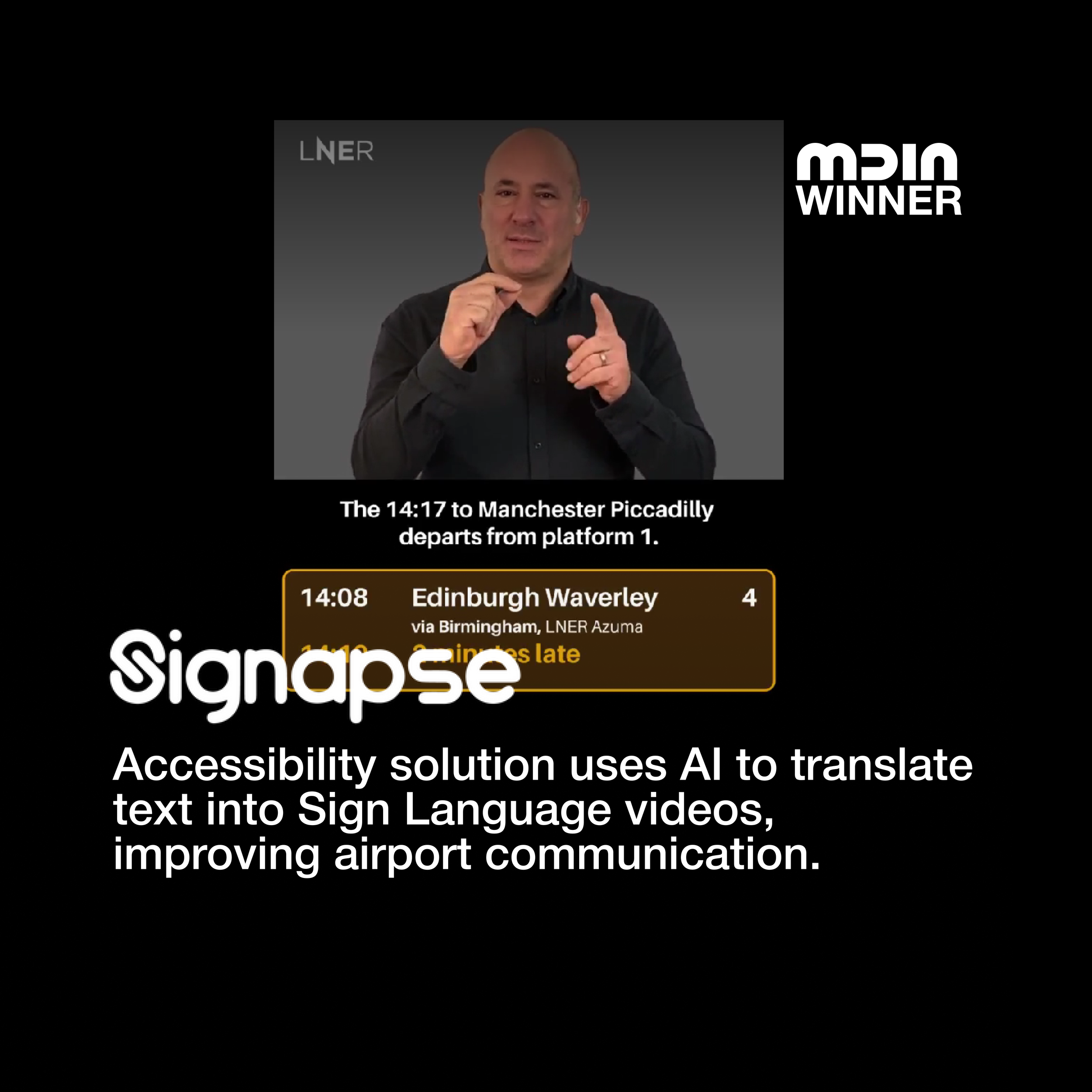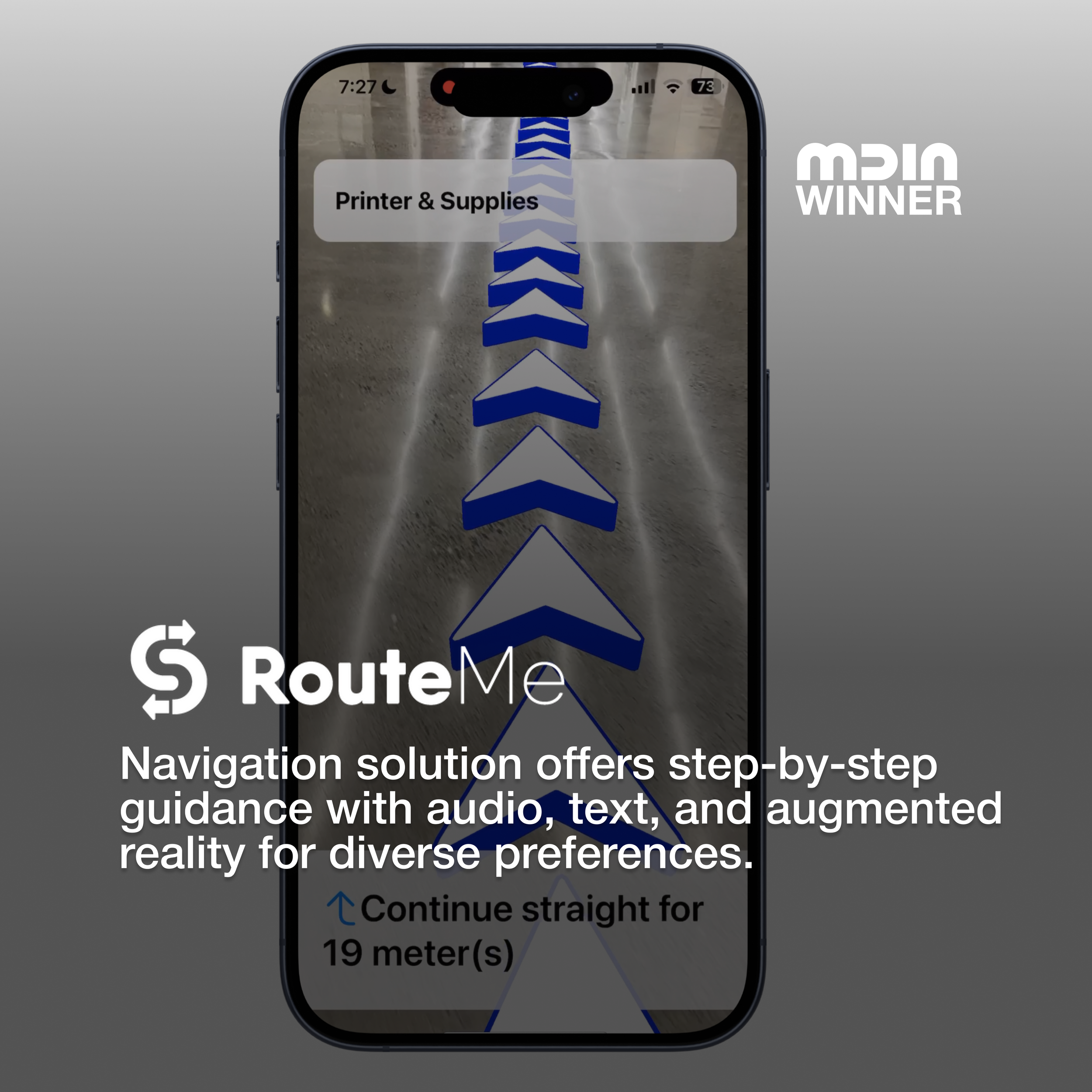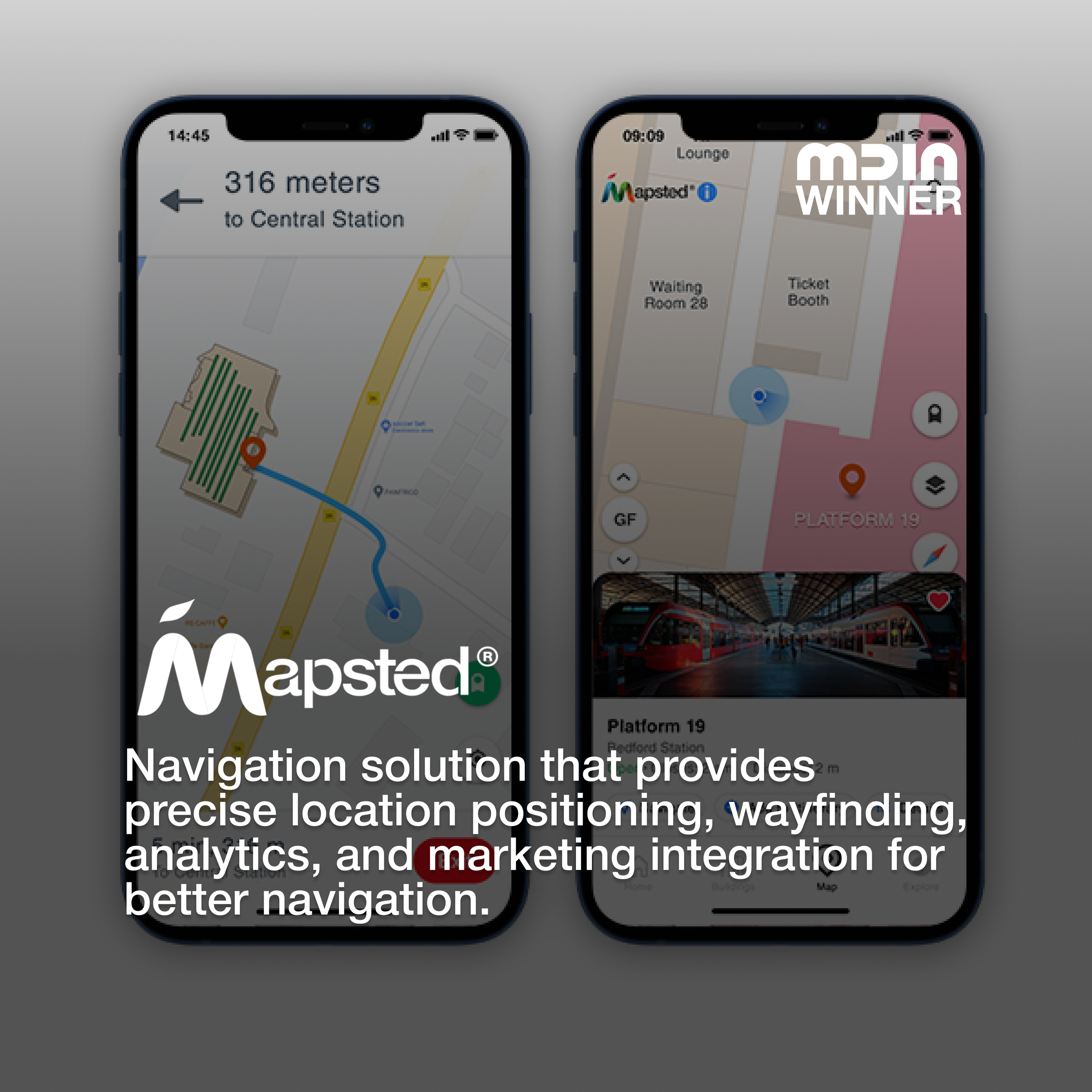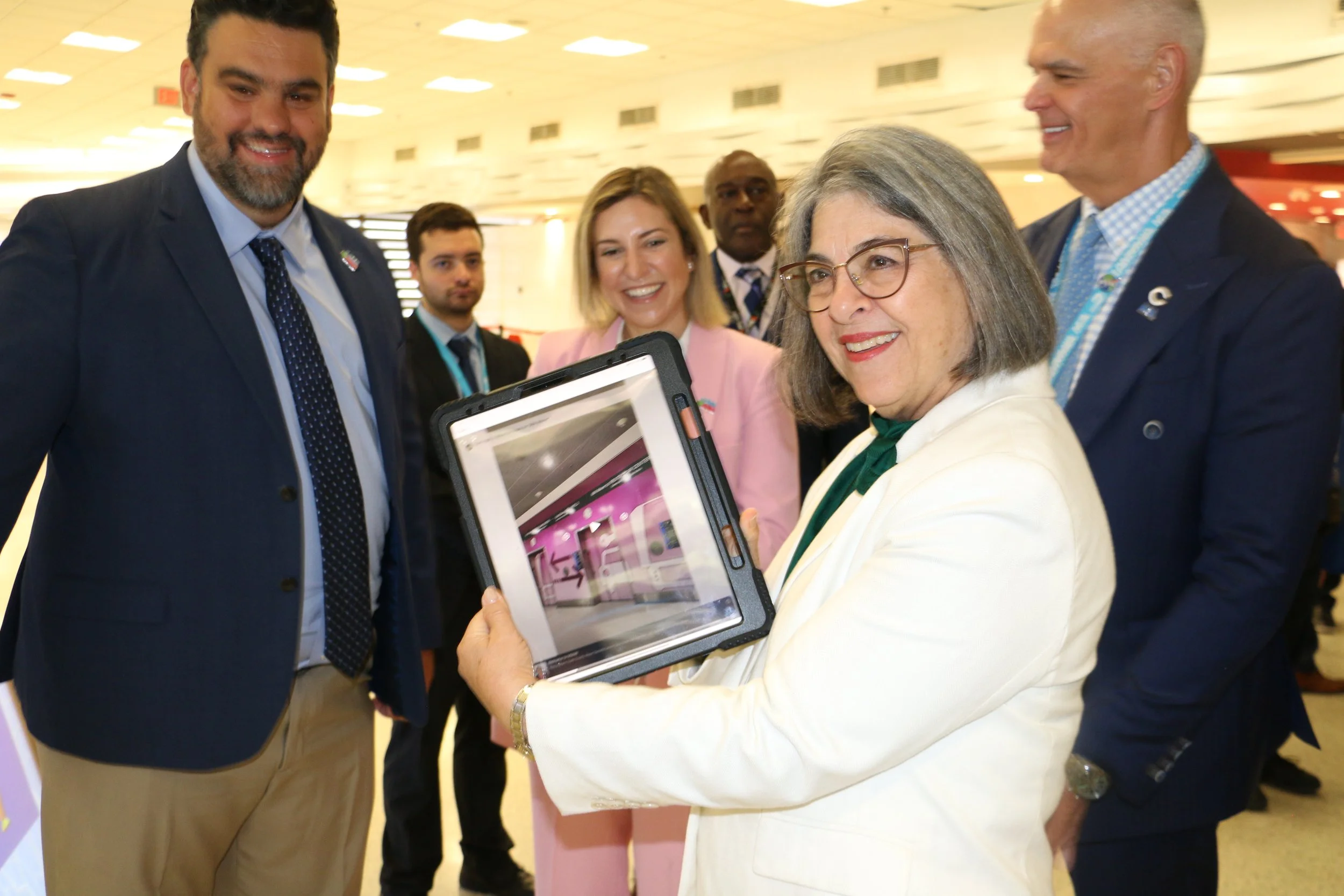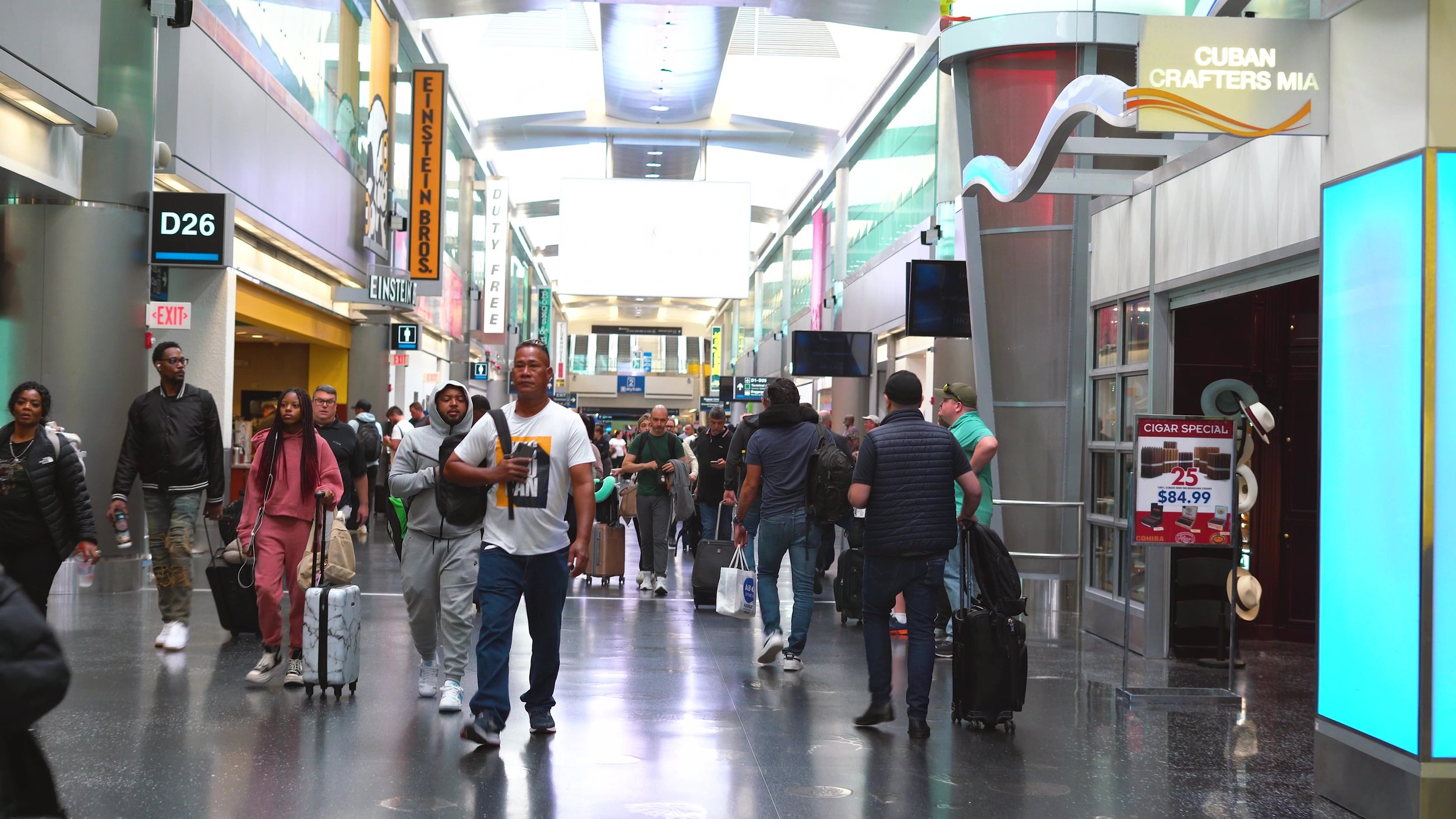
Improving the Passenger Experience
How MDIA and Miami International Airport piloted next-gen technologies to transform airport navigation and accessibility
Miami International Airport (MIA) is one of the busiest travel hubs in the United States, welcoming more than 50.7 million passengers in 2022 with projections soaring to 77 million by 2040. As this growth accelerates, so too does the urgency to meet the diverse needs of travelers—from first-time visitors to seasoned jetsetters, from young families to passengers with disabilities.
To meet passengers’ evolving needs and anticipated growth in transiting passengers, MDIA and Miami International Airport asked this question:
How might we improve the passenger experience at Miami International Airport in the areas of accessibility, navigation, and sustainability?
Launched in the Fall of 2023, MDIA and MIA sought solutions from across the globe to support a more seamless and enjoyable airport experience for all Miami International Airport passengers, particularly those that could:
Enhance wayfinding through navigation support
Improve accessibility for deaf and hard of hearing passengers
Promote environmentally responsible practices throughout the airport
Pilots reached over 4,300 passengers through navigation solutions alone. While the number of passengers who interacted with accessibility solutions wasn’t tracked, the platform received consistently positive feedback, especially from accessibility advocates and frontline airport staff.
136
Applications
4,370+
Passengers Reached
3
Pilots
The Solutions
MDIA and collaborators selected 3 visionary companies in Spring 2024 to test and validate their solutions with MIA:
RouteMe
RouteMe provides an indoor navigation solution powered by AI and Augmented Reality, helping users easily navigate spaces like airports, hospitals, retail stores, and entertainment venues. With a focus on accessibility and multilingual support, the platform works without requiring downloads for a seamless experience.
The pilot reached 3,700+ passengers trying to navigate between the rental car agencies and pre-security areas of Concourses D, E, and J. RouteMe executed the most successful pilot for this Challenge by far, with the most seamless integration experience and the largest reach of passengers. MIA stakeholders attributed this to the simplicity of the platform with a focus on user experience (for both passengers and MIA users), navigation efficiency, ample data points and insights, and strong communication between all parties involved in pilot execution.
Signapse
Signapse is a Sign Language translation software company that uses a photorealistic AI signer to provide greater accessibility for the Deaf community. Their transport translation product aims to support individuals navigating public spaces, like airports, by translating announcements into British Sign Language or American Sign Language in real-time.
MIA placed recorded welcome messages in American Sign Language at ticket counter monitors in Concourses E through J and on the Central Boulevard billboard. The pilot received positive feedback from Deaf and hard of hearing community members, highlighting the role of technologies like this in promoting an inclusive environment. Even within a limited deployment footprint, the demonstration showcased the promise of AI-driven accessibility solutions in public spaces.
Mapsted
Mapsted is a Canadian technology firm providing indoor navigation solutions. Their technology provides precise location positioning, wayfinding and analytics integration without the use of hardware such as beacons to determine position.
Over 600 passengers downloaded Mapsted’s application to help them navigate between Cruise Line Drop-Offs to airline ticket counters and security checkpoints.

About MDIA
Miami-Dade Innovation Authority bridges the gap between private innovators and the public sector to fast-track innovation that improves quality of life for residents. Through our signature Public Innovation Challenge, we identify, invest in and support early-to-growth stage companies from across the globe to pilot, test and validate their technology and solutions to pressing public challenges in collaboration with the economic engines within Miami-Dade County.


